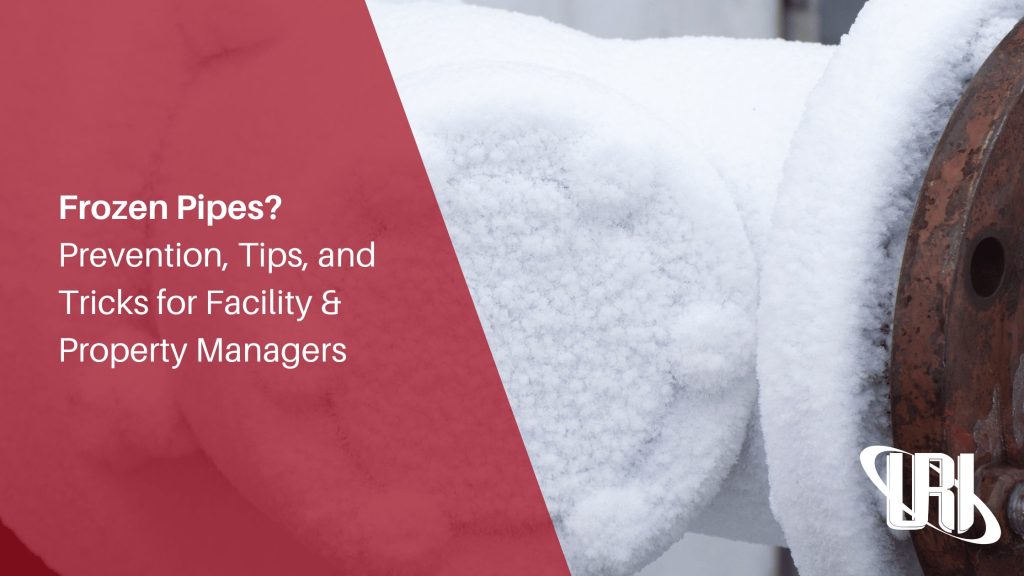
Winter is a busy time of year for many people and companies. Holidays, cold weather, and the presence of Spring right around the corner can all keep us distracted from the threats that the winter season poses on properties and more specifically the piping networks within them and the risk of frozen pipes. The following guide will provide facility and property managers some tips and tricks on which types of pipes and temperatures to be concerned about as well as preemptive measures you can take to prevent pipes from freezing and bursting.
Pipes of all different materials are at risk of freezing as they transport water all throughout our properties. Since water freezes at 32°F, you should start to be concerned when the temperature drops significantly below this for a long period of time. Generally, if the outside temperature drops below 20°F for a period of 6 hours or longer, pipes will begin to freeze. That being said, some pipes are more susceptible to freezing than others, which will be discussed in a later section.
Why are pipes freezing something to be concerned about? One thing to keep in mind about water is that when it freezes, it expands and takes up more volume. In the case of pipes, when the water freezes and expands in a confined area, it pushes up against the walls of the pipe causing it to break or burst. Once the water unfreezes, it will leak out of the busted pipe and can cause a significant amount of water damage to your property.
As mentioned earlier, some pipes are at greater risk of freezing than other pipes are. These are the ones located outdoors, near the exterior of the building, or in unheated interior areas such as basements and garages. Generally, pipes made from any material have the potential to freeze under the right conditions; however, due to the thermal conducting properties of metals such as copper, these types of pipes are more likely to freeze when exposed to the previously mentioned conditions. One type of plastic pipe that is slightly less likely to burst is a PEX pipe. These pipes are more flexible than any other plastic pipe making them more resistant to unwanted leaks.
Simply put, frozen pipes are an inconvenience no one wants to deal with. Luckily, there are preemptive measures you can take to prevent this from happening to you.
While there are different precautionary measures that you can take in order to prevent your pipes from freezing, sometimes it is inevitable. If you experience any issues with frozen pipes, and the water damage that they can cause, during the winter months call the URI Team of commercial property restoration experts for assistance – We’re On It! One call to our 24/7 Emergency Response Hotline: 888.327.9664 will mobilize our crews to get your property back in normal operations fast.